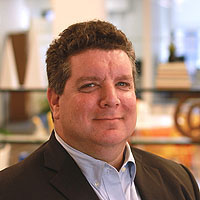Source of article DOAR Litigation Consulting.

Trial Consultants Q&A: DOAR’s Roy Futterman
Law360, New York (February 23, 2017, 12:42 PM EST) —
Roy Futterman, Ph.D. is a clinical psychologist, jury consultant and director at DOAR Inc.’s trial strategy consulting group. He is also Law360’s “Talking Bull” columnist in which he writes about the fictional jury consultant on the television show “Bull.” Based in New York, he oversees mock trials and focus groups, provides strategic analysis and trial recommendations for civil and criminal cases, prepares witnesses, and selects juries in federal and state courts. In addition to publishing journal articles on a variety of topics, Dr. Futterman has been interviewed and quoted in such media outlets as the New York Times, Fortune, Bloomberg, and the Huffington Post. He can be reached at RFutterman@DOAR.com, www.DOAR.com and on twitter @RoyFutterman.
Q: What aspect of trial consulting do you and your firm specialize in? What is unique about your firm, compared to other trial consulting firms?
A: DOAR Inc. is a full-service litigation consulting firm that offers a wide array of services including expert witness consulting, trial graphics, trial technology and jury consulting. We specialize in high-profile, complex litigation nationally in jury trials, bench trials, and national and international arbitrations.
I am a director and jury consultant, so I lead multidisciplinary teams in the development of trial strategy, primarily through creating focus groups and mock trials, assisting attorneys with witness preparation and jury selection, and providing strategic consultation throughout trial.
DOAR is differentiated by being a full-service company that provides a wide variety of services that all work together seamlessly. This means, for example, that we can supply a legal team with the most specific subject matter expert witness who has been fully prepared to testify effectively alongside educational graphics that have been prepared with the witness, and that the expert’s testimony will echo the broader trial themes and narrative that have been developed, tested and refined for the specific case.
As an added bonus, the multidisciplinary, collaborative nature of how we work means that we are a pretty well-rounded group of people with whom you would probably enjoy spending too much time in a stressful trial war room.
Q: Why did you decide to become a trial consultant?
A: I am a clinical psychologist, so I used to do individual and group therapy in many different settings with many different types of people. I was particularly interested in group psychotherapy and did a lot of my initial training in the most difficult types of groups. When I was very untrained, I ran groups with quite psychotic people in a halfway house for people who had just come out of locked inpatient wards. I later ran what are known as community meetings on inpatient units in which there could be 35-40 highly unstable people in a group. I then ran an outpatient substance abuse treatment program at a public hospital in the Bronx. The challenge in all of these groups was to have a therapeutic impact amid a certain level of chaos and delusional material, interspersed with threats of violence here and there.
I began to wonder whether there might be other uses for my group therapy skills. About ten years ago, I spoke with DOAR about possibly using my clinical skills in the litigation world, and we gave it a go.
I used my group skills with jury groups and mock jury groups, and used my psychological clinical skills in witness preparation (which is a lot about treating anxiety and working with personality disorders) and jury selection (which is about reading a lot into people based on very little information). Jury consulting is a relatively new industry, so there is a lot of room for developing theory and technique.
Q: What was the most interesting or memorable case that you worked on?
A: One case that has always been close to my heart is one in which I led a team working for a class of female pharmaceutical sales representatives who had sued their company Novartis for gender discrimination. I particularly liked this case because we got a big $250 million dollar jury verdict for women who deserved it, and for whom I was also able to assist in telling their story effectively within the awkward structure of trial testimony.
While preparing the representatives to testify, I saw that many of them had a similar issue that was getting in the way of them speaking from their hearts. They had been heavily trained in giving sales presentations and this blocked the viewers’ access to the emotions behind their stories.
I worked with each of them to drop the sales front and to speak more directly from their hearts, and worked with each of them and their attorneys on developing the stories within their direct examinations so that each had a narrative arc and each echoed broader case themes in the openings, closings and others’ testimonies.
The sales representatives were astute learners and were able to tell their emotional stories in direct and powerful fashion, one after the other. It was an emotionally rewarding experience, and justice was done magnificently.
Q: What is an aspect or responsibility of your job that might be surprising to people who are unfamiliar with your industry?
A: From my experiences at parties, I can tell you that most members of the general public have no idea that the jury consulting field even exists. When I tell these partygoers about the field, it makes perfect sense to them, and they mostly want to know about how you pick a jury and when the pigs-in-a-blanket are coming around again.
Attorneys, on the other hand, increasingly see jury consulting services as a routine part of going to trial, but here again, the focus is often on jury selection.
There is much less awareness of what really consumes the day-to-day lives of jury consultants which is much more about joining trial teams and corporate counsel to develop overall strategy over time. This is particularly true when I work on families of cases, such as a group of product liability cases regarding one medication or multi-district litigation about financial allegations. I work with teams months or years from trial dates, and I have even created focus group research to inform a series of complaints that have yet to be filed. We frequently work early on in the discovery period to do research, select and prepare experts, and develop and test eventual trial themes.
There is also less awareness of the fact that we typically work with the team all the way through the trial, preparing witnesses, consulting on trial tactics, refining and creating graphics and developing the closing. Eventually, the bailiff sends us home.
Q: What are some of the biggest challenges when working with attorneys and their clients?
A: One of the biggest challenges when working with new clients is that they often believe that jury consultants are more like technicians who do discrete tasks rather than more comprehensively joining them in developing strategy. Sometimes attorneys think we should just turn on the lights so they can have a mock trial.
The challenge is that it is hard to teach a new client in advance that you can be far more helpful. They just have to experience it, and then they get it. Sometimes when we are just chatting during a break in a meeting, you can see an attorney have a sudden realization that we move from trial to trial, that we work on many cases in a year and spend weeks in courtrooms. When attorneys realize all of this, they often move us from the kiddie table to the big boy table. Then we pick up a turkey leg and get to work.
The post Dr. Roy Futterman Featured In Law360 Q&A Article appeared first on DOAR.

